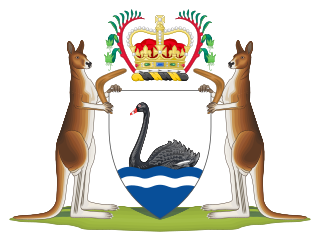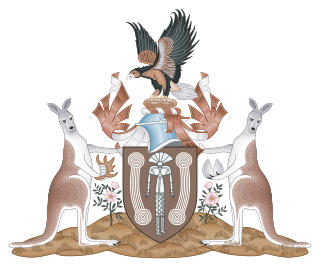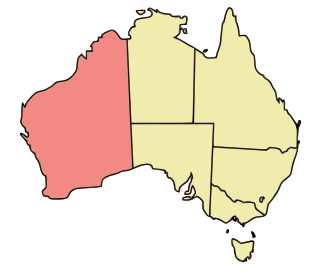History
There has been a history of law reform in common law countries such as Australia. Prior to the establishment of the commission, various parliamentary inquiries, ad hoc commissions, or panels had advised on law reform.
One of the first systematic attempts was in 1822 and 1823, when Commissioner John Thomas Bigge, a former Chief Justice of Trinidad, prepared three reports on the state of the colony of New South Wales. Those reports recommended various changes in the legal system, government, and use of convicts in the colonies. [1] The present commission is a successor to that grand history of law reform in Australia.
The commission was the first permanent body established in Western Australia to continually conduct and investigate law reform. Its establishment was important as it was an independent body that could devote its deliberations full-time to examining law reform in the state
Functions
The Commission from time to time will make recommendations to the Attorney-General of Western Australia for possible references for the Commission to consider. The Attorney-General may direct the Commission to report on those suggestions, or may direct the Commission to report on other matters. The Attorney-General may also direct the Commission as to the order in which reports are to be considered.
After completing the report, the Commission forwards it to the Attorney General, who then is required to table it in the Western Australian Parliament.
The Commission is also required to make an annual report on its work during the year. The commission's reporting year starts in July and ends in June. [2]
The report is then provided to the Attorney-General, who may then table the report in the State Parliament.
Native title refers to rights, recognised by Australian law, held by Aboriginal and Torres Strait Islander groups or individuals to land that derive from their maintenance of their traditional laws and customs. These Aboriginal title rights were first recognised as a part of Australian common law with the decision of Mabo v Queensland in 1992. The doctrine was subsequently implemented and modified via statute with the Native Title Act 1993.

The Western Australia Police Force, colloquially WAPOL, provides police services throughout the state of Western Australia, an area of 2.5 million square kilometres, the world's largest non-federated area of jurisdiction, with a population of 2.66 million, of which 2.11 million reside in the Perth Metropolitan Region.

John Leslie Toohey, AC, QC was an Australian judge who was a Justice of the High Court of Australia from 1987 to 1998.

The legal system of Australia has multiple forms. It includes a written constitution, unwritten constitutional conventions, statutes, regulations, and the judicially determined common law system. Its legal institutions and traditions are substantially derived from that of the English legal system. Australia is a common-law jurisdiction, its court system having originated in the common law system of English law. The country's common law is the same across the states and territories.
The Australian Law Reform Commission is an Australian independent statutory body established to conduct reviews into the law of Australia. The reviews, also called inquiries or references, are referred to the ALRC by the Attorney-General for Australia. Based on its research and consultations throughout an inquiry, the ALRC makes recommendations to government so that government can make informed decisions about law reform.

Aboriginal title is a common law doctrine that the land rights of indigenous peoples to customary tenure persist after the assumption of sovereignty to that land by another colonising state. The requirements of proof for the recognition of aboriginal title, the content of aboriginal title, the methods of extinguishing aboriginal title, and the availability of compensation in the case of extinguishment vary significantly by jurisdiction. Nearly all jurisdictions are in agreement that aboriginal title is inalienable, and that it may be held either individually or collectively.

The Magistrates Court of Western Australia is the first tier court in Western Australia, a state of Australia. It has jurisdiction in respect of criminal and civil matters, as well as a range of administrative matters. The court came into existence in May 2005 and was the result of the amalgamation of the Court of Petty Sessions of Western Australia, Small Claims Tribunal of Western Australia, and the Local Court of Western Australia.
The New South Wales Law Reform Commission is a commission to investigate, review and advise on the reform of the law in New South Wales, a state of Australia. The present commission came into existence on 25 September 1967 although it had been administratively established previously in 1966.
The Coroner's Court of Western Australia is a court which has exclusive jurisdiction over the remains of a person and the power to make findings in respect of the cause of death of a person in Western Australia.

The Local Court of the Northern Territory is one of two levels of court in the Northern Territory of Australia. It has jurisdiction in civil disputes up to A$250,000, and in criminal cases in the trial of summary offences, and also deals with preliminary matters for indictable offences which are then heard by the Supreme Court of the Northern Territory. There are local courts held in Darwin, Northern Territory, Alice Springs, Katherine, Tennant Creek, and some "bush courts" in remote locations.

Prostitution or sex work in Australia is governed by state and territory laws, which vary considerably. Federal legislation also affects some aspects of sex work throughout Australia, and of Australian citizensabroad.
Aboriginal Community Court, or Aboriginal court was the name given to the specialised courts dealing with Indigenous Australian offenders in the state of Western Australia between 2006 and 2015.
Indigenous Australian customary law refers to the legal systems and practices uniquely belonging to Indigenous Australians of Australia, that is, Aboriginal and Torres Strait Islander people.
A community legal centre (CLC) is the Australian term for an independent not-for-profit organisation providing legal aid services, that is, provision of assistance to people who are unable to afford legal representation and access to the court system. They provide legal advice and traditional casework for free, primarily funded by federal, state and local government. Working with clients who are mostly the most disadvantaged and vulnerable people in Australian society, they also work with other agencies to address related problems, including financial, social and health issues. Their functions may include campaigning for law reform and developing community education programs.
Indigenous Australians are both convicted of crimes and imprisoned at a disproportionately higher rate in Australia, as well as being over-represented as victims of crime. As of September 2019, Aboriginal and Torres Strait Islander prisoners represented 28% of the total adult prisoner population, while accounting for 2% of the general adult population. Various explanations have been given for this over-representation, both historical and more recent. Federal and state governments and Indigenous groups have responded with various analyses, programs and measures.
The Department of Justice is the current Western Australian government department responsible for the provision of high quality and accessible justice, legal, registry, guardianship and trustee services to meet the needs of the community and the Western Australian Government.
Ruby Florence Hammond was an Australian Indigenous rights campaigner and the first Indigenous South Australian to seek election to the Federal Parliament.

Lesbian, gay, bisexual and transgender (LGBT) rights in Western Australia have seen significant progress since the beginning of the 21st century, with male sex acts legal since 1990 and the state parliament passing comprehensive law reforms in 2002. The state decriminalised male homosexual acts in 1990 and was the first to grant full adoption rights to LGBT couples in 2002.

A Custody Notification Service (CNS), sometimes referred to as a Custody Notification Scheme, is a 24-hour legal advice and support telephone hotline for any Indigenous Australian person brought into custody, connecting them with lawyers from the Aboriginal legal service operating in their state or territory. It is intended to reduce the high number of Aboriginal deaths in custody by counteracting the effects of institutional racism. Legislation mandating the police to inform the legal service whenever an Aboriginal or Torres Strait Islander person is brought into custody is seen as essential to ensure compliance and a clear record of events. Where Custody Notification Services have been implemented, there have been reductions in the numbers of Aboriginal deaths in custody.
Murri Courts are a type of specialist community court for sentencing Aboriginal and Torres Strait Islander people in Queensland, Australia. The first Murri Court was established in Brisbane in August 2002, with more being established throughout the state over the next 10 years, catering for both adult and young offenders, under the Magistrates and Children's Court networks. After being closed down by the government in September 2012 as a cost-cutting exercise, they were reopened in April 2016 under the new Palaszczuk government. As of July 2022 there are Murri Courts in 15 locations throughout Queensland.








